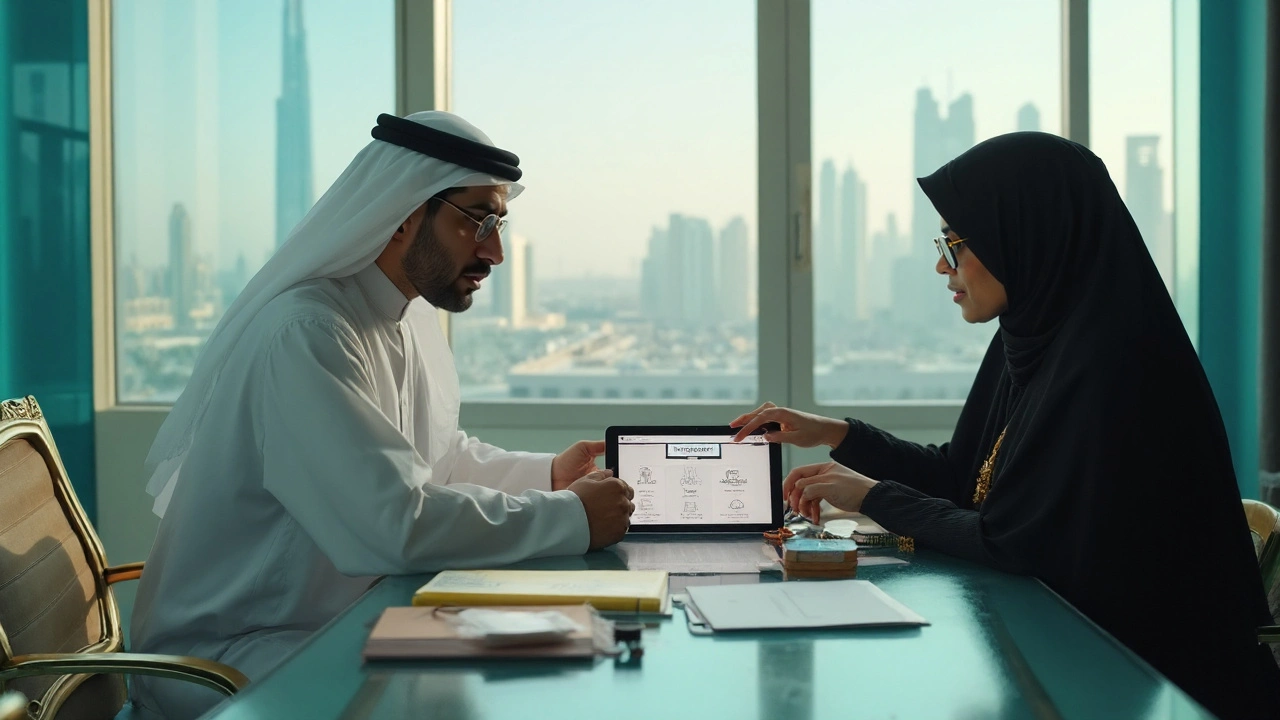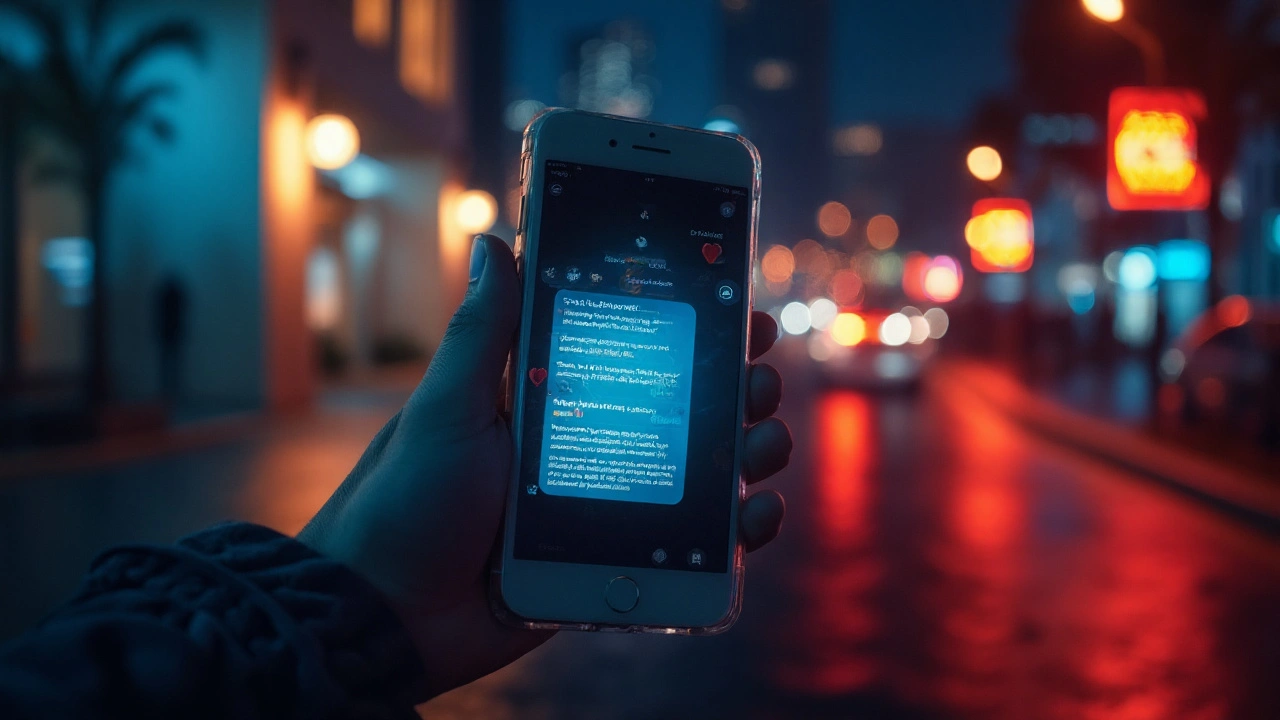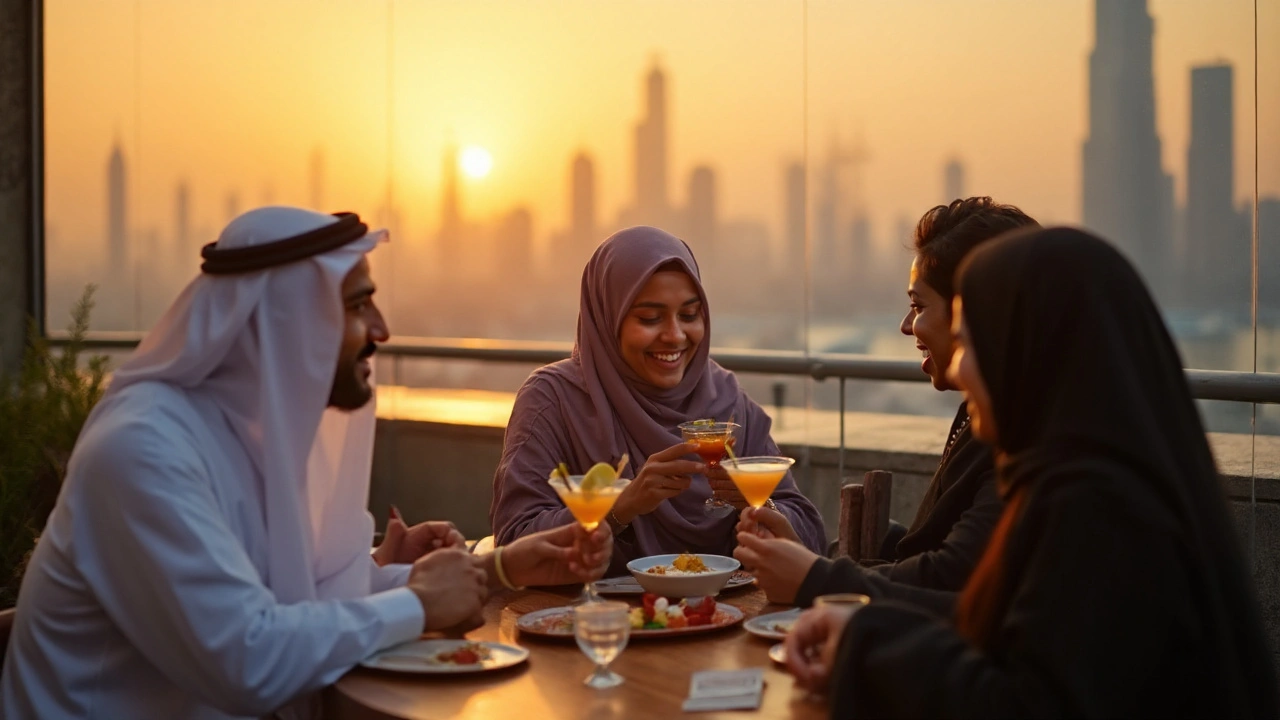Dubai Indian Escort: What It Really Means, Laws, Safety Tips, and Legal Alternatives (2025)

You typed this because you want something specific and fast. Here’s the straight talk: in Dubai, anything that looks like commercial sex sits under strict laws with real penalties. This guide explains what people usually mean by dubai indian escort in search results, what’s actually legal in the UAE, how scams and extortion play out, and safe, legitimate ways to find company without risking fines, jail, or embarrassment.
TL;DR: The reality behind “Dubai Indian escort” in 2025
- Prostitution is illegal in the UAE under Federal Decree-Law No. 31 of 2021 (Penal Code); arranging, advertising, or paying for it can lead to arrest, fines, deportation for expats, and a criminal record.
- Most ads you see are not what they claim. Expect identity theft, blackmail, bait-and-switch, and crypto/gift-card shakedowns as the most common outcomes.
- Hotel policies and UAE law require valid ID and guest registration; bringing unregistered visitors to rooms is often refused and can trigger staff calls to security or police.
- If what you want is conversation, dinner, or a night out, there are legal services: dining companion agencies, licensed tour hosts, group experiences, and upscale social venues.
- Golden rules: never pay upfront, never share ID selfies, never send deposits by crypto or gift cards, and don’t message about illegal activity. Choose legal alternatives.
What “Indian escort in Dubai” usually signals: context, culture, and the law
When people search “Indian escort in Dubai,” they often expect discreet companionship, intimacy, or a date-like experience. But Dubai is not like cities where regulated adult services exist. Under UAE’s Federal Decree-Law No. 31 of 2021 (the Penal Code), prostitution and “facilitating debauchery” are criminal offenses. Federal Decree-Law No. 34 of 2021 on combating rumors and cybercrimes also makes it risky to share or solicit indecent content online, extort, or advertise illegal services. That means “booking” someone you find online for sexual services is not just frowned upon-it’s a legal risk.
Another layer: hotels in Dubai follow strict guest registration rules. Front desks routinely check original IDs and register all overnight guests. Unregistered visitors are commonly denied entry to rooms, especially late at night. This isn’t about being judgmental-it’s a compliance and security protocol. Expect your ID to be scanned; expect staff to refuse unregistered “visitors.”
Why so many ads then? Dubai is a global, expat-heavy city (the UAE’s population is about 85-90% expatriates), so scammers know there’s demand plus a fear of stigma. They weaponize that. The typical playbook: glossy photos, “Indian model,” “high class,” then they pivot to deposits, ID selfies, or encrypted app chats where threats begin.
There’s also cultural nuance. People search “Indian” not just for ethnicity but for language comfort (Hindi, Urdu, Punjabi, Malayalam), shared food/music tastes, or perceived warmth. If what you actually want is conversation and companionship with someone from a South Asian background, there are legal ways to align with that preference-without stepping into illegal territory.

How to protect yourself online: spotting scams, traps, and risky situations
Keep the following as a practical, non-negotiable checklist. It’s not about being paranoid-it’s about staying out of messes that get expensive and humiliating fast.
- Don’t pay deposits or “verification” fees. Scammers love crypto, gift cards, and instant transfers. Real, legal hospitality or entertainment services (tours, ticketed experiences, social clubs) use normal payment flows-cards, official invoices, or platform checkouts. If someone insists on USDT, BTC, or scratch-card codes, walk away.
- Don’t share ID selfies or passport images. You’re handing them blackmail material. In the UAE, cyber extortion is a crime (Decree-Law No. 34/2021), but that won’t un-send your data or the panic you’ll feel when they start threatening to contact your employer or family.
- Beware the “room number + hotel” trick. Scammers ask for your hotel and room “for security.” Minutes later, they claim to be in the lobby and demand payment to “come up,” or they forward fake police screenshots. Hotels rarely allow unregistered visitors to just “pop up.”
- Avoid bait-and-switch. One person in photos, a different person shows up (if anyone does). If a situation starts with pressure-"pay now, or I leave"-it’s usually orchestrated. Keep interactions on platforms with identity and payment protections; if the service can’t be verified as legal and licensed, don’t play.
- Assume hidden cameras and screen recordings. If you ever hop on a video call or send anything suggestive, assume it’s saved. Extortion is often triggered not by what you do in person, but what you send online in panic or haste.
- Don’t text about illegal acts. Messaging apps feel private until they aren’t. Saying “I want X” can be used against you later, even if “X” never happened. Keep your chats clean. If it’s illegal, don’t put it in writing.
- Know hotel norms. Many hotels require all visitors to show original IDs and register, sometimes with additional fees for extra guests. If someone claims “no problem, just say you’re my cousin,” that’s not how front desks operate in Dubai.
- Use real, licensed services for legal experiences. Licensed tour operators, group dining, cooking classes, live music lounges in hotels, or private yacht tours with professional crew-these take care of compliance so you can relax.
- If threatened, stop engaging. Don’t negotiate. Save evidence (screenshots, handles, timestamps). Report blackmail to Dubai Police via the eCrime platform or the nearest station. In practice, many victims pay out of fear; that usually leads to more demands.
- Protect your digital footprint. Turn off live location sharing by default. Strip EXIF data from photos before sharing. Use an app like Signal for private, legal chats with friends; don’t use it to arrange illegal activity.
Bottom line: the quickest way to avoid trouble is to avoid the illegal market. If companionship is the goal, you have safer options that won’t put you on edge every time your phone pings.
Legal, low-risk alternatives for companionship in Dubai (and how they compare)
If you came looking for a specific vibe-chill dinner, witty banter, exploring the city with someone sociable-there are legitimate ways to get that in Dubai. These options focus on conversation, shared experiences, and hospitality-not sex. They’re designed to keep you within the law while still giving you a memorable night out.
| Option | What it is | Legality | Typical Cost Range | Privacy Level | Pros | Cons |
|---|---|---|---|---|---|---|
| Dining Companion Agencies | Book a professional host for dinner/social events (conversation-only) | Legal if no sexual services; use licensed agencies/contracts | Medium-High (hourly + meal) | Moderate (public venues; no room visits) | Polished social skills; clear boundaries; receipts | Premium pricing; limited spontaneity |
| Licensed Private Guides/Tour Hosts | City tours, culture walks, food crawls, desert safaris with certified guides | Fully legal; DET/DTCM licensed providers | Medium (per person or private tour rates) | Public/open-air venues | Safe, curated, great conversation; learn the city | Time-structured; not late-night |
| Hotel Lounges & Live Music Bars | Upscale venues inside international hotels with music and social crowds | Legal; venues enforce ID and conduct rules | Low-Medium (drinks/cover) | Public, supervised | Relaxed vibe, easy to meet people, safe setting | Not private; you do the mingling |
| Group Classes & Clubs | Cooking, salsa, painting, language exchanges, book clubs | Legal; community-driven | Low-Medium (class fees) | Public | Meet like-minded people; authentic connections | Requires planning; chemistry not guaranteed |
| Private Yacht/Boat Charters (Licensed) | Day or sunset cruises with professional crew | Legal with licensed operators | High (charter fee) | Private group setting | Memorable; Instagram-worthy; compliant | Costly; book ahead |
| Meetup/Expat Events | Networking and social mixers for professionals | Legal; venue-supervised | Low (tickets or free) | Public | High chance of conversation; diverse crowd | Timing-dependent; less curated |
Notice what all these have in common: clear rules, licensed operators, and an obvious separation from anything sexual. You get company and a good time-with paperwork and policies protecting both sides.

Checklists, FAQs, and next steps
Quick safety checklist
- Keep it legal: avoid ads offering sexual services; those are illegal and often criminal scams.
- Never pay a deposit or “travel fee.” If money must move, it should be through a licensed business with receipts.
- Don’t share passport, Emirates ID, work badge, or home address.
- Use public venues. Hotel lounges and reputable restaurants keep things safe and easy.
- Tell a trusted friend your plan and timing when meeting new people-any city, any time.
- If anything feels off, leave early. Your instincts are worth more than sunk costs.
Mini‑FAQ
Is escorting legal in Dubai if it’s “just companionship”?
“Escorting” as a word is vague. Paid social hosting through licensed agencies at public venues is legal. Anything involving sexual services, solicitation, or arranging “private visits” is illegal. If an offer hints at sex, it’s a red flag. Stick to licensed, transparent services with clear terms.
Will hotels allow a guest to join me in my room?
Hotels in Dubai typically require all visitors to present original ID and be registered; many decline non-registered visitors, especially late. Policies vary by property, but “sneaking someone up” rarely works and can trigger security intervention.
Are there police “stings” on escort ads?
Dubai takes public morality and cybercrime seriously. Whether it’s a sting or a scammer, the outcome for you can still be legal trouble or extortion. The safest approach is not to engage with illegal markets at all.
What if I’m being blackmailed after chatting with someone online?
Stop responding. Keep evidence (screenshots, dates, usernames). Report through the Dubai Police eCrime channel and avoid paying; payment often leads to more demands. If you’re a resident, consult a local lawyer for next steps. If you’re a visitor, go directly to police support.
Can I meet people organically without risk?
Yes. Hotel lounges, after‑work mixers, group tours, and interest‑based classes are safe routes. You control the pace, you stay public, and you’re inside the rules. Chemistry can happen without drama.
Next steps by scenario
- Short‑stay visitor with one free evening: Book a reputable food tour or live‑music ticket inside a major hotel. If you want conversation, choose a small‑group tour or a dining experience that seats guests together. Budget: medium. Risk: low.
- Business traveler wanting a polished dinner companion (no intimacy): Use a dining companion or corporate hosting service with clear contracts and invoicing. Meet at a well-known restaurant; no room visits. Budget: medium‑high. Risk: low if licensed.
- Expat resident looking to expand their circle: Stack your week with two meetups (professional and hobby) and one class (salsa, improv, cooking). You’ll meet people who actually live in Dubai and want similar things. Budget: low‑medium. Risk: low.
- Worried you’ve already overshared online: Freeze contact now. Change privacy settings, remove public personal info, and document everything. If threats start, file an eCrime report. Consider speaking with your hotel’s security team if you’re a visitor.
Pro tips
- Legit services don’t rush you. Scammers rely on urgency to override your common sense.
- Craft a polite default refusal. “Thanks, not comfortable sharing ID or paying deposits. I only use licensed services.” Then stop replying.
- If you want a specific cultural connection (e.g., Indian food/music), pick experiences that naturally gather that crowd: Bollywood nights at hotel venues, regional food tours, or South Asian community events.
- If a conversation veers into illegal territory, end it. No moral lecture needed-just self‑protection.
Why this advice is grounded
Dubai’s enforcement culture is consistent: protect public order, keep venues compliant, and push risky activity out. The laws named here-Federal Decree‑Law No. 31 of 2021 (Penal Code) and Federal Decree‑Law No. 34 of 2021 (Cybercrimes)-frame the risk for both in‑person and online behavior. Hotels add another layer with ID and registration rules. This is why so much of the shady market moves to deposits, ID selfies, and blackmail: it’s safer for criminals than showing up.
If you came for connection, you can have that-just pick channels meant for it. Dubai has great hospitality, polished venues, and lively expat scenes. You can enjoy all of that without stepping on legal landmines or getting your phone held hostage by a scammer with screenshots.